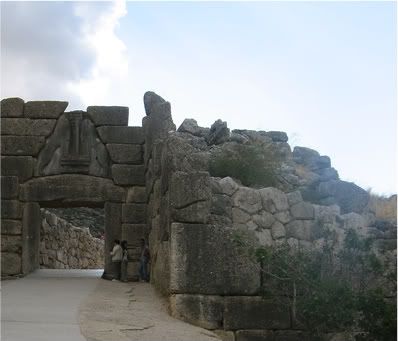Word of warning: this post begins with a lengthy personal anecdote, you can skip to the
* if you want to get to the point more quickly.
I took my first ancient philosophy class in July 2009. I was expecting to hate it, given what I deemed was the gross analytical bent in academic philosophy in the United States characterized by an examination of the logic and structure of linguistic utterance to the point of nonsens. As it turns out, although I may have been correct about philosophy at large (I have no way of knowing), I was surely wrong about this class.
The class was, in fact, analytic in its approach. However, the questions asked were lively and fascinating. We read Plato's
Meno
and
Theatetus
(with a recommendation to read Burnyeat's introduction) in small pieces and had a 2h30 discussion format in which to discuss in-depth questions on each reading. It was magnificent. And the PhD candidate running the class was incredible (and was an alumnus from my college!)
The questions, designed by the Grad student running the seminar, asked us to explore the logic behind each set of claims and exchanges as well as the reason for each story, tangent, or explanation made by one of the characters. Instead of looking at the rhretorical, historical, grammatical, and cultural meanings of the passages, the close analysis was on the logical through lines of the narrative in each particular speech or interchange. Although most of the class had a background in philosophy (many were on the cusp of graduating in philosophy) all of them seemed genuinely interested in the classical contexts of specific statements if it provided a means by which to understand the logic or the rhetorical weight of a statement (the lack of context and focus solely on language was something that had given me a distaste for analytic philosophy in my few encounters with it). When I finished the class, I knew I wanted to go into Ancient Philosophy. The dissection at such a minute level was far more illuminating than I expected. However, I wanted to approach it from a more classical bent-- mixing what I thought was admirable about the approach to that wonderful class used in conjunction with what I found incredible about a work like Thomas Szlezak's
Reading Plato
[1].
Going into my senior year and without proper prerequisites, I could not suddenly jump into a philosophy-heavy program. Even so, I was not dissuaded. I still would like to work on classical philosophy in graduate school, although, perhaps move into it through a classics department.
*One of the things that the PhD candidate who lead my class showed me was
Philosophical Gourmet Report: Ancient Philosophy. Although he had a great interest in the subject, ancient philosophy was not his primary field. He warned me, of course, not to take the list at face value, and helped me check through faculty lists (to survey names and specialties of the professors at each institution. Using a combination of hearsay, investigation into the faculty of a number of schools, the
Classical Journal's List of PhD programs in Classical Studies (to which Propertius II directed me),
Philosophical Gourmet Report: Ancient Philosophy and I have made a preliminary list. Then, in my internet wanderings I discovered this
article, evaluated the
Philosophical Gourmet Report: Ancient Philosophy.
The article on a blog called
Certain Doubts describes a posting by Professor Michael Pakaluk on his blog
Dissoi Blogoi acerbically criticizing
Philosophical Gourmet Report: Ancient Philosophy (points 3-6) and excoriating any of those who choose to employ it (points 1-2). Probably much more so than the author of
Certain Doubts, I do not have the guidance that Pakaluk or another professional in the field might provide. Ancient philosophy-- which consisted of one professor at my alma mater-- was decisively separated from any connection with classics whatsoever and I was, instead, discouraged from "serving two masters" by leaping into a hybrid field. Although I think criticisms 3-6 on
Dissoi Blogoi were valid, the first two points which begin with the phrase "any student" are absolutely a personal attack on those students who choose to view these rankings for the sake of gaining information, even though Pakaluk's response claims that they are not. I may know the scholars I would like to work with and those I would dislike, but I have no idea whether a PhD from one institution or another is more likely to land me a better job-- or whether the recommendation of one faculty member over another is likely to do the same.
And so, the search for a graduate program continues...
Endnotes
- If you do not like Plato for some reason or are suspicious of Plato or are tired of the old, traditional interpretations of Plato, I cannot recommend Reading Plato more highly. It is 120 pages of pure awesome. Szlezak provides incredible insight and context to a complex philosopher and revolutionized my own thought about Plato. It was originally published in German, Szlezak's native tongue, as Platon lesen. This is of course reason #87 that I need to learn German.
" and "People Help the People
" are good examples. Being a classicist and a Time Team (UK) fan, I also love "Here Come the Romans
." I have this album downloaded onto my Kindle
(under Menu, under Experimental there is a rudimentary MP3 player)
opening for the Jayhawks. They did three songs together for the encore.
, one of my favorite bands. I thought that Steatman were awesome and bought their album. Steadman employs fascinating concepts in their lyrics, especially in the allusions in "No Big Deal." I also absolutely love "Come Alive."











